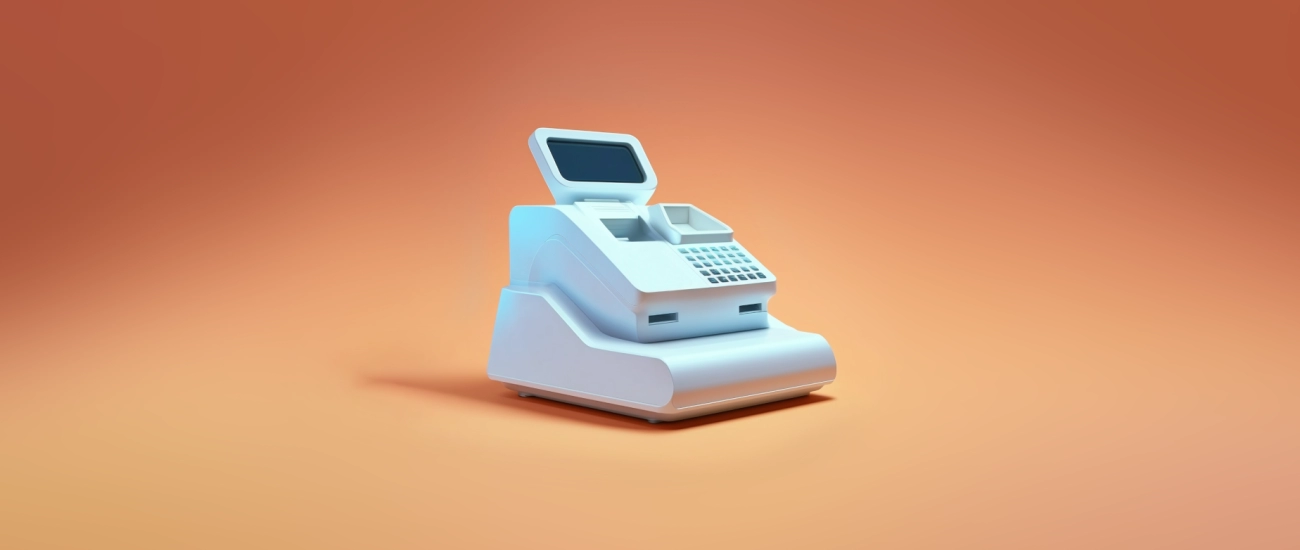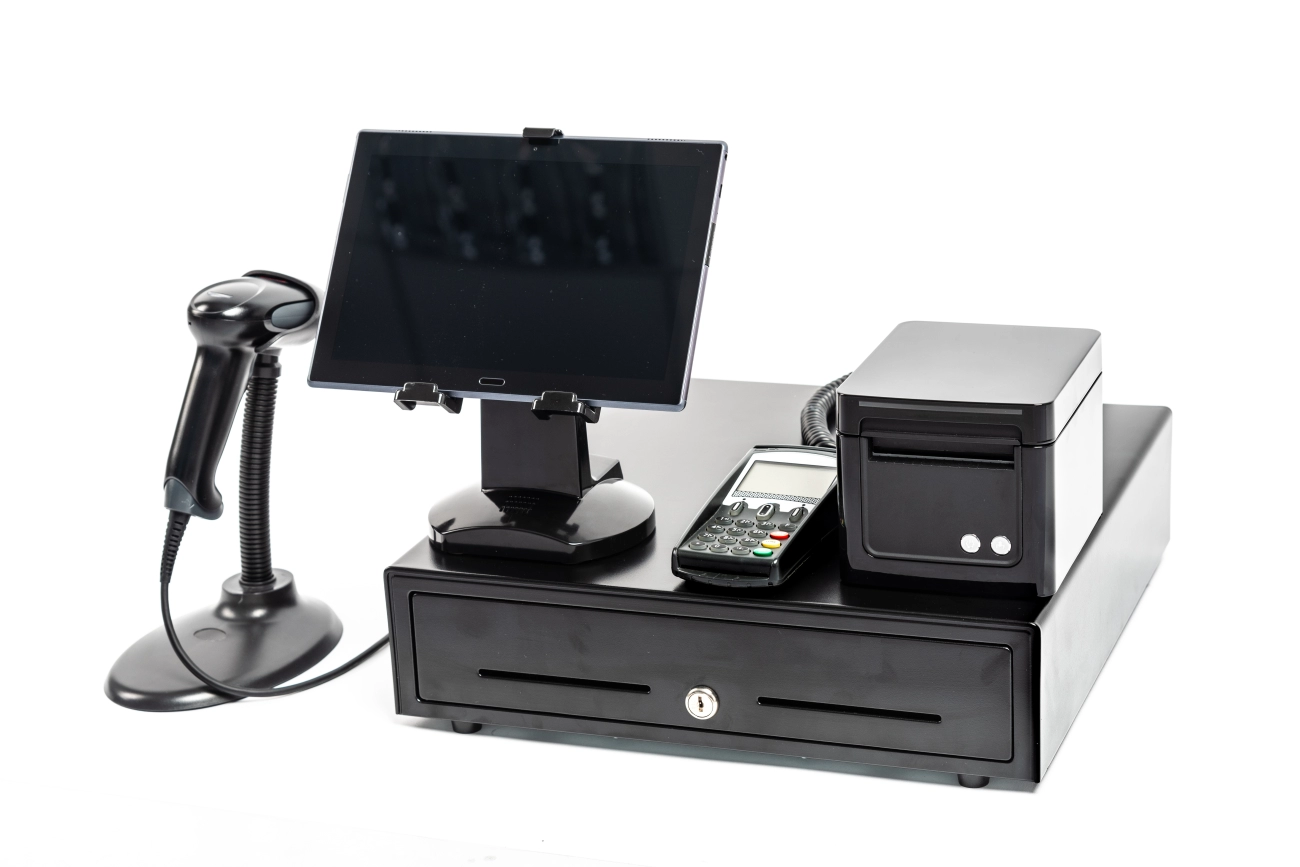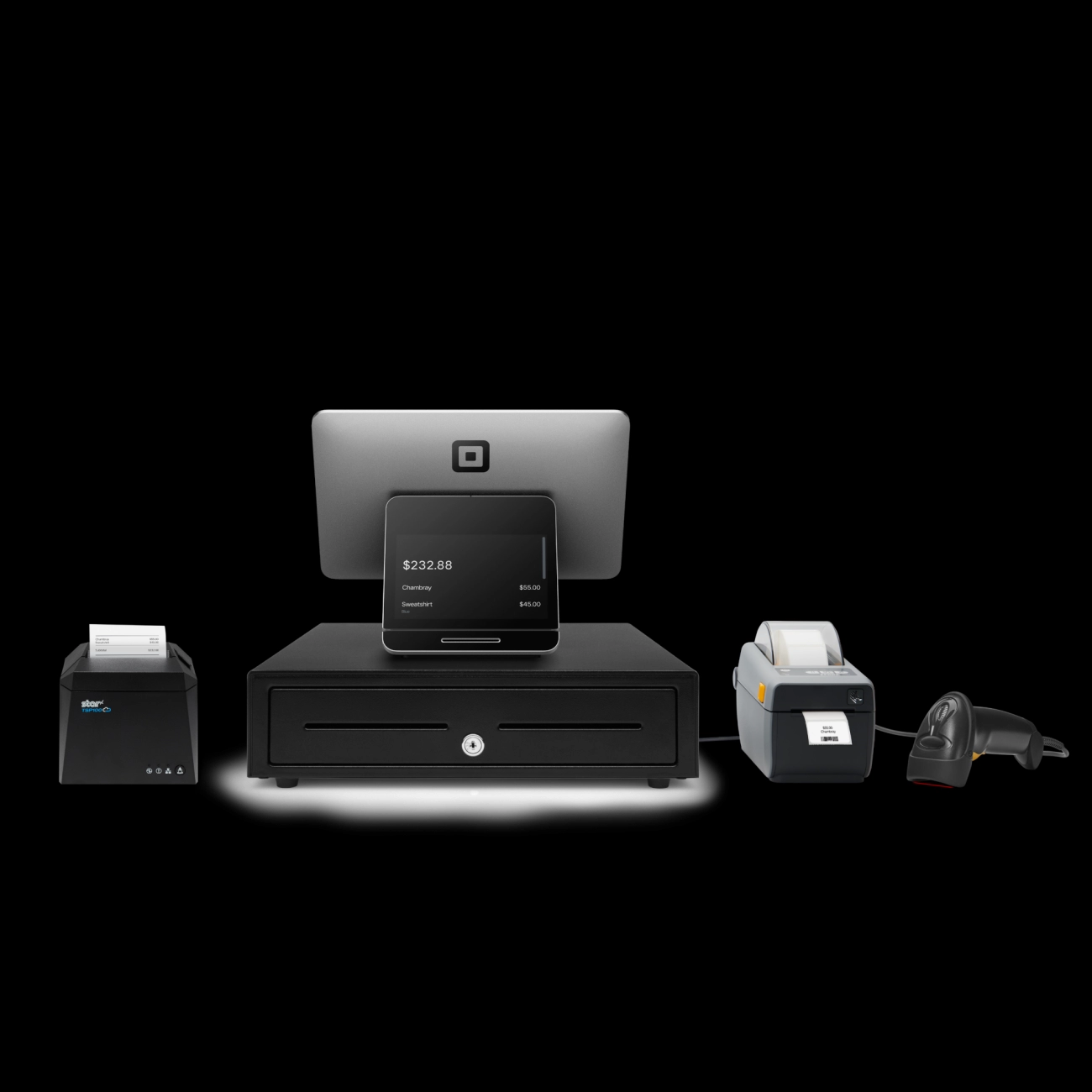Cash Register Hardware Basics for Retail A Complete Guide

Are you looking to understand the basics of cash register hardware for retail and how it can transform your checkout process? Whether you’re a small business owner or managing a growing store, knowing your cash register components—from POS terminals to barcode scanners—is essential for smooth, fast, and secure transactions.
In this guide, you’ll get a clear, practical overview of the hardware that powers retail cash registers. You’ll learn what each part does, how they work together, and what to consider when choosing the right setup for your business. If you want to avoid costly mistakes and boost your customer experience, this post is exactly what you need.
Let’s get started!
What is Cash Register Hardware in Retail POS Systems

If you’re new to retail or looking to upgrade your setup, you might wonder: What exactly is cash register hardware? At its core, cash register hardware refers to the physical devices used in retail environments to process sales transactions. This includes everything from the traditional cash drawer where money is stored securely to modern components like barcode scanners, receipt printers, and payment terminals that handle card and contactless payments.
Traditional Cash Registers versus Modern POS Hardware
Understanding the difference between the old-school cash register and today’s retail POS hardware components is key for any retailer. Traditional cash registers were primarily mechanical or electronic boxes designed to record sales and store cash. They had limited functionality—mostly just basic transaction recording and cash management.
By contrast, modern POS hardware works as part of an integrated system that connects to powerful POS software. This software tracks inventory, manages customer data, supports multiple payment types, and provides detailed sales reporting. Hardware today includes touchscreen POS terminals, payment devices supporting NFC and chip cards, and equipment designed for speed and accuracy at checkout.
Why Cash Register Hardware Matters in Retail Operations
Choosing the right cash register hardware isn’t just about handling money; it’s about running your retail business smoothly and efficiently. Here’s why it’s crucial:
- Accuracy and Speed: Efficient checkout reduces wait times and errors during transactions.
- Security: Secure cash drawers and reliable payment terminals protect your revenue.
- Customer Experience: Tools like customer displays and fast barcode scanners improve engagement and satisfaction.
- Business Insights: Hardware integrated with software helps you gather data to make informed decisions.
- Scalability: Having the right hardware means you can grow your business without needing constant expensive upgrades.
In short, the hardware is the foundation of your retail system—making it critical for effective operations, security, and customer satisfaction. Whether you run a small boutique or a high-volume store, understanding these components will help you pick the right setup tailored to your needs.
Core Components of Cash Register Hardware for Retail

Understanding retail POS hardware components helps you get the most from your cash register system. Each piece plays a vital role in making your checkout process smooth, fast, and secure.
POS Terminal Computer The Control Center
The POS terminal computer acts as the brain of your system. It runs the POS software, processes sales, tracks inventory, and manages transactions in real time. Modern terminals often come with touchscreen interfaces, making it easy for employees to handle sales quickly.
Cash Drawer Secure Money Storage
A sturdy, reliable cash drawer keeps your cash and checks safe. It opens only when a sale is completed or authorized, protecting your money from theft or mistakes. Look for drawers with strong locking mechanisms and compatibility with your POS terminal.
Receipt Printer Transaction Evidence and Branding
A receipt printer provides customers with proof of purchase and offers an opportunity to reinforce your brand. Choosing the right printer—thermal or impact—depends on your volume and receipt type needs. Fast, clear printing helps speed up checkout and reduces wait times.
Barcode Scanner Speeding Up Product Checkout
A barcode scanner scans product barcodes instantly, cutting down manual entry errors and speeding up transactions. This component is essential for retail environments with diverse product mixes or high transaction volumes, ensuring efficient checkout.
Customer Display Transparency and Engagement at Checkout
The customer display shows purchase details in real time, building trust and engagement during checkout. This transparency reduces questions and disputes, enhancing the overall customer experience.
Payment Devices Card Readers NFC Terminals
Payment hardware such as card readers and NFC terminals enable smooth, secure transactions. They support chip cards, magstripe, and contactless payments like Apple Pay or Google Pay. Offering multiple payment options meets customer expectations and boosts sales.
Optional Accessories Scales Signature Pads and Others
Depending on your retail needs, optional accessories like scales for weighing products, signature pads for authorizing payments, and other peripherals can be added. These enhance your register’s versatility, especially in specialty stores or quick-service restaurants.
Knowing these core components helps you assemble a cash register system that suits your business size, product mix, and customer expectations. Together, these elements create a fast, secure, and user-friendly checkout experience tailored to the demands of U.S. retailers.
How Cash Register Hardware Works Together in Retail POS Systems

When it comes to point of sale hardware, the real power lies in how all the parts work together smoothly during a retail transaction. Each component, from the POS terminal computer to the barcode scanner, plays a specific role that connects to the rest through integrated software. Understanding this workflow helps retailers optimize checkout speed, accuracy, and customer experience.
Retail Transaction Workflow Using Cash Register Hardware
Here’s a simple breakdown of how the hardware components interact in a typical sale:
- Scanning products – The cashier uses a barcode scanner to quickly input items into the system instead of typing prices manually.
- Processing items in the POS terminal – The POS terminal computer acts as the control center, compiling scanned products, calculating totals, and applying taxes or discounts.
- Payment processing – The customer pays using a payment terminal device, such as a chip card reader or NFC contactless payment method. This hardware securely communicates with credit card networks.
- Cash drawer opens – If the payment involves cash, the cash drawer opens only after the transaction is approved, ensuring secure money handling.
- Printing receipts – The receipt printer immediately produces a transaction record for the customer, supporting transparency and branded customer service.
- Customer display updates – A customer-facing display shows real-time totals to keep shoppers engaged and informed.
This hardware workflow streamlines the entire checkout process, reducing human error while increasing checkout speed.
Integration With POS Software
Hardware isn’t useful on its own. The integration with POS software is what orchestrates everything. POS software acts as the brain, controlling:
- Inventory management
- Sales tracking
- Employee shifts
- Pricing rules
- Multi-currency capabilities for diverse customer bases
All hardware devices must communicate effectively through the software to provide seamless and real-time data flow.
Hardware Compatibility and Communication Matters
Choosing cash register hardware means ensuring compatibility with your existing POS software and other system components. A few points to consider:
- Plug and play compatibility saves setup time and reduces headaches.
- Hardware with standard communication protocols like USB, Ethernet, or Bluetooth ensures easier integration.
- Unified device drivers reduce conflicts and improve reliability.
- Investing in hardware built for your software reduces downtime, especially in high-demand retail environments where speed and accuracy matter.
If your hardware doesn’t communicate well, you’ll face issues like transaction errors, slow checkouts, or inaccurate sales data.
understanding the how behind cash register hardware integration helps you build a reliable POS system. A well-matched set of devices working in harmony with your software creates a smooth retail transaction flow, benefiting both your business and your customers.
Choosing the Right Cash Register Hardware for Your Retail Business

Selecting the best cash register hardware is crucial to keep your retail operations smooth and efficient. Here’s what you need to focus on:
Assess Your Business Size and Transaction Volume
Your hardware should match how busy your store is. For small businesses or pop-up retail stores, simple systems with a basic POS terminal and a reliable cash drawer might be enough. But if you run a larger shop or a quick-service restaurant, you’ll want hardware that handles high transaction volumes without slowing down checkout.
- Low volume: Basic setups with essential components.
- Medium to high volume: Multi-functional terminals, fast barcode scanners for retail, and robust receipt printers.
- High-demand retail environments: Systems with quick processing and strong retail payment terminal devices.
Consider Product Mix and Checkout Speed Needs
The type of products you sell affects your hardware choice. If you have lots of items with barcodes, efficient barcode scanners help speed up checkout. For produce or weighed goods, integrated scales are a must. Retailers prioritizing fast checkout should invest in hardware designed for quick scanning and easy payment methods, including contactless payments.
Budget Considerations
When investing in cash register systems, balance cost with quality. Cheaper hardware might be tempting but often means more downtime and repairs. Think long-term:
- Investing in quality saves money by reducing breakdowns.
- Cost-saving options can work if you’re just starting out or have low sales volume.
Remember, the right hardware should justify the upfront cost by improving speed, accuracy, and customer experience.
Scalability and Upgrade Options
Your business will grow and change, so pick hardware that scales with you. Look for:
- Systems with customizable checkout options.
- Hardware that supports software updates or integration with new devices.
- Options to add signature pads, extra payment terminals, or mobile POS solutions as needed.
This flexibility prevents costly hardware overhauls down the line.
Reliability and Support from Suppliers
Reliable hardware is only part of the equation. Strong supplier support is key to keeping your register system running smoothly. Choose vendors with:
- Good reputations for POS terminal suppliers.
- Responsive customer support.
- Warranty and repair services.
- Expertise in the US retail market and familiarity with local regulations and payment methods.
Partnering with a supplier like SDLPOS means ongoing support and access to cutting-edge hardware tailored for US retailers.
By carefully assessing your business size, product needs, and budget—while prioritizing reliability and scalability—you’ll find the perfect cash register hardware to help your retail business run efficiently and grow steadily.
Maintenance and Troubleshooting Basics for Cash Register Hardware
Keeping your retail POS hardware components in top shape is essential for smooth sales and happy customers. Regular maintenance and quick troubleshooting not only extend the life of your equipment but also reduce downtime during busy hours.
Routine Maintenance Tips to Prolong Hardware Life
To get the most from your cash register system basics, follow these key maintenance steps:
- Clean equipment regularly – Dust can clog barcode scanners, cash drawers, and receipt printers. Use a soft, dry cloth or recommended cleaning wipes.
- Check cables and connections – Ensure all cables (power, USB, network) are secure and free of damage.
- Update software and firmware – Many POS terminal suppliers release updates to fix bugs and improve performance.
- Inspect the cash drawer – Avoid jamming by not overfilling and making sure it opens and closes smoothly.
- Test peripherals monthly – Scanners, card readers, and customer displays should be tested to avoid surprises at checkout.
- Backup data regularly if your hardware integrates with POS software, protecting sales info and reports.
Common Issues and Quick Fixes for POS Hardware
Here are some typical problems you’ll encounter and easy ways to fix them without waiting for service:
- Barcode scanner not reading: Clean the scanner lens, check cable connections, and restart the device.
- Receipt printer jams or fades print: Remove stuck paper carefully, replace low ink/thermal paper rolls, and clean the print head.
- Cash drawer won’t open: Verify it’s getting proper signals from the POS terminal, check the manual release mechanism, and ensure no obstruction.
- Card reader errors: Reboot the device, check internet or network connections, and update payment terminal device drivers.
- Customer display blank or flickering: Confirm cable connections and test with another unit if possible.
When to Seek Professional Support for Cash Register Hardware
While many issues have quick fixes, some situations need expert help to avoid bigger problems:
- Persistent hardware failures despite troubleshooting
- Complex network or integration issues with your POS software
- Firmware or software updates require professional installation
- Signal or communication problems between multiple devices
- Physical damage or hardware replacement needs
Team up with a reliable cash register supplier or service provider to handle these challenges fast, minimizing downtime and keeping your retail business running smoothly.
Following these maintenance and troubleshooting steps will keep your cash register system reliable, improve checkout speed, and protect your investment in retail payment terminal devices. Regular care and knowing when to call in the pros will keep your business ahead in the fast-paced retail environment.
Trends and Innovations in Cash Register Hardware for Retail
The world of cash register hardware is evolving fast, driven by new tech and changing customer expectations. Staying updated on the latest trends can really boost how you run your retail operation.
Cloud Connected POS Systems
One major shift is to cloud connected POS systems. Instead of relying on hardware with limited onboard storage, these systems store your sales, inventory, and customer data safely in the cloud. This provides several advantages:
- Real-time data access: Manage multiple stores or remote locations from anywhere.
- Automatic updates: Your POS stays current without downtime.
- Scalability: Easily add new hardware or software features as your business grows.
Cloud-based POS is especially valuable for retailers handling multi-currency transactions or who want integrated advanced analytics tools for smarter decision-making.
Mobile POS Solutions and Wireless Hardware
Mobile POS (mPOS) and wireless hardware are another big trend. Tablets, smartphones, and wireless card readers let you check out customers anywhere in the store or even at pop-up events.
Key benefits include:
- Improved checkout speed and customer experience
- Flexibility for high-demand or quick-service restaurants
- Space saving with no bulky fixed hardware
Wireless barcode scanners, cash drawers, and receipt printers are improving too — all designed to work smoothly together without messy cables or long setup times.
Contactless Payments and Enhanced Security
Contactless payments like NFC tap-to-pay and mobile wallets (Apple Pay, Google Pay) are now common. Retailers need payment terminal devices that support these options securely while maintaining fast checkouts.
Security upgrades focus on:
- EMV chip card technology to reduce fraud
- End-to-end encryption during transactions
- PCI compliance for data protection
These features ensure trust and safety for both customers and retailers, essential in today’s payment environment.
Keeping up with these innovations ensures your cash register hardware supports a smooth, efficient, and secure checkout process, perfectly tailored for US retail demands. Investing in modern POS hardware also sets your business to grow confidently in a fast-changing market.
Why Partner with SDLPOS for Your Cash Register Hardware Needs
When it comes to retail POS hardware components, choosing the right supplier can make all the difference. SDLPOS is a trusted name in the US market, offering a complete range of cash register hardware designed for retail businesses of all sizes.
Comprehensive Product Range and Expertise
SDLPOS provides everything you need from POS terminal computers and cash drawers to receipt printers, barcode scanners, and payment devices like card readers and NFC terminals. Their lineup includes options for:
- Small businesses needing simple, reliable cash registers
- High-demand retail environments requiring multi-currency and fast checkout systems
- Pop-up stores or remote locations with mobile and wireless POS hardware
This wide variety means you can find hardware that fits not just your current needs but also supports growth and scalability. SDLPOS also offers customizable checkout options and POS hardware with advanced analytics tools, helping you keep pace with evolving retail trends.
Strong Customer Support and Services
One thing that sets SDLPOS apart is their commitment to ongoing support. They understand that cash register systems for high-demand retail environments can face unique challenges. That’s why they provide:
- Expert guidance on how to choose POS hardware tailored to your business
- Quick troubleshooting help and hardware maintenance advice
- Reliable repair and replacement services when you need professional support
Their support team is accessible and knowledgeable, giving you peace of mind that your retail operations won’t be interrupted by hardware issues.
Staying Ahead in Retail Hardware Solutions
The retail landscape is always changing, with new tech like cloud-connected POS systems, contactless payments, and mobile POS solutions becoming standard. SDLPOS stays ahead by:
- Regularly updating their product lineup with the latest retail payment terminal devices
- Offering hardware compatible with modern POS software for seamless integration
- Providing scalable solutions for franchises and retail businesses with high employee turnover
By partnering with SDLPOS, you get access to innovative, reliable cash register systems that keep your checkout smooth and secure. If you’re looking for a cash register supplier with a global reach but focused on local US market needs, SDLPOS is a smart choice.
In , SDLPOS combines deep hardware expertise, a full range of retail POS devices, and unmatched customer support to help you build a strong retail checkout system that grows with your business.
